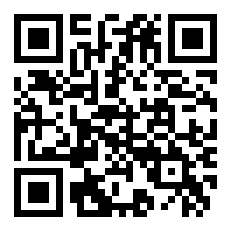Blindness and Visual Impairment in Adults Aged 50 years and Older in Ndele, A Rural Community In Rivers State, Nigeria
Community Ophthalmology
Abstract
Background: Ageing is described as a lifelong process of progressive changes in psychological, biological and social structure of a person which no medical or surgical intervention can reverse or stop.1 An increasing ageing population is of importance in developing countries such as Nigeria where life expectancy has increased from 48 years to 52 years currently.2 An increase in the ageing population implies an increase in dependency ratio, decline in the work-age population and increase in chronic illness and blindness from age related causes. The result of surveys on the prevalence of blindness and low vision in several African countries such as Uganda,3Tanzania4 and Nigeria5 also show higher prevalence with increasing age. Several community-based6,7 and hospital- based studies8,9 have highlighted the causes of blindness and low vision in Nigeria as well as a rise in prevalence and incidence with increasing age; however, only few have focused primarily on the elderly. The aim of this study was to determine the prevalence and common causes of blindness and visual impairment among adults aged 50 years and older in Ndele community, Rivers State, Nigeria.
Methods: The study was a population based cross-sectional descriptive study of adults aged 50 years and above in Ndele, Rivers State, Nigeria conducted between February 2014 and April Study participants were selected randomly using probability proportion to size of the six settlements in Ndele community. A structured interviewer-administered questionnaire was used to extract demographic data; and medical and ocular history from each participant. Subsequently, participants had general and ocular examinations including visual acuity, anterior and posterior segments examination, intra-ocular pressure measurement, and fundus photography.
References
Ikoro N. The ageing eye” functional changes from cradle to gray: A review. J Niger Optom Assoc 2011; 13.
WHO Nigeria: www.who.int/countries/ nga/en. Accessed 1st January, 2015.
Kawuma M. Eye diseases and blindness in Adjumani refugee settlement camps, Uganda. East Afr Med J 2000; 77: 580– 582.
Habiyakire C, Kabona G, Courtright P, Lewallen S. Rapid assessment of avoidable blindness and cataract surgical services in Kilimanjaro region, Tanzania. Ophthalmic Epidemiol 2010;17: 90–94.
Dineen B, Gilbert CE, Rabiu M, Kyari F, Mahdi AM, Abubakar T, et al. The Nigerian national blindness and visual impairment survey: Rationale, objectives and detailed methodology. BMC Ophthalmol 2008; 8: 17.
Caleb M, Perpetue O, Olukorede A, Lohdip V and Amos N. Prevalence and Causes of Blindness and Visual Impairment in Plateau State, Nigeria. TAF Prev Med Bull 2010; 9: 401–406.
Pedro-Egbe C, Chukwukah I, Babatunde S, Umeh R. Blindness and visual impairment in the Niger Delta: A study of Ahoada East Local Government, Rivers State, Nigeria. Port Harcourt Med J 2007;1: 56–61.
Nwosu S, Onyekwe L. Ocular Problems of the Elderly in Onithsa, Nigeria. Niger. J. Clin. Pract. 2005; 5: 123–126.
Abdulraheem IS, Adepoju FG, Salaudeen AG, Akanbi AA. Pattern of Eye Problems of the Elderly in a Nigerian Tertiary Health Institution. Niger Med Pract 2008; 51: 29– 32.
Mathenge W, Kuper H, Limburg H, Polack S, Onyango O, Nyaga G, et al. Rapid assessment of avoidable blindness in Nakuru district, Kenya. Ophthalmology 2007; 114: 599–605
Ocansey S, Awusabo-Asare K, KumiKyereme A, Boadi-Kusi SB. Ocular Health of the Emerging Elderly Population in Ghana: Evidence from a peri-urban Community. Heal Aging Clin Care Elder; 2013: 21–31
Downloads
Published
How to Cite
Issue
Section
License
Copyright (c) 2023 Transactions of the Ophthalmological Society of Nigeria

This work is licensed under a Creative Commons Attribution-NonCommercial-NoDerivatives 4.0 International License.

















